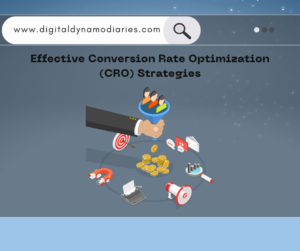Website Branding
In today’s digital age, website branding has become an essential aspect of creating a successful online presence. Website branding goes beyond mere aesthetics; it involves a cohesive strategy that defines how your brand is perceived online. This article delves into the concept of website branding, its importance, elements that contribute to a strong digital brand identity, and the best practices for effective website building.
What is Website Branding?
Website branding refers to the process of creating a distinct and memorable online presence that reflects your brand’s values, mission, and personality. It encompasses various elements, including design, content, and user experience, to create a unified brand image. Effective website branding ensures that visitors recognize and remember your brand, fostering trust and loyalty.
Importance of Website Branding
The importance of branding your website are listed below;
1. First Impressions Are Crucial: A potential customer’s initial engagement with your brand is frequently through your website. A well-branded website creates a positive first impression, encouraging visitors to explore further. Making a good first impression is essential in the competitive world of digital marketing, where consumers are faced with an abundance of choices.
2. Consistency Across Channels: Consistent branding across your website and other digital channels strengthens brand recognition. When your website aligns with your social media profiles, email marketing, and other touchpoints, it creates a seamless experience for users. This uniformity helps in building a cohesive brand story, making your brand more reliable and professional in the eyes of consumers.
3. Trust and Credibility: A professional and cohesive website design instills confidence in your audience. Consistent branding signals reliability and professionalism, which are crucial for building trust. When users see a well-maintained and visually appealing site, they are more likely to believe in the quality of your products or services.
4. Differentiation: In a crowded digital marketplace, strong branding sets you apart from competitors. A unique brand identity helps you stand out and attract your target audience. By clearly communicating what makes your brand special, you can carve out a niche in the market, making it easier for customers to choose you over others.
5. Emotional Connection: Effective branding taps into the emotions of your audience. By conveying your brand’s story and values, you can create a deeper connection with your visitors, leading to long-term loyalty. When customers feel emotionally connected to a brand, they are more likely to become repeat customers and advocates.
Key Elements of Website Branding
The following are the elements of website branding:
1. Logo and Visual Identity
Your logo is the cornerstone of your brand identity. It should be prominently displayed on your website and consistent with other branding materials. Additionally, choose a color palette and typography that reflect your brand’s personality and use them consistently across your site. These visual elements should be recognizable and align with the overall aesthetic you want to convey.
2. Website Design and Layout
The overall design and layout of your website should align with your brand’s aesthetic. This includes everything from the structure of your site to the images and graphics you use. Aim for a clean, intuitive design that enhances user experience and keeps visitors engaged. Consider how each page, section, and element contributes to the overall user journey.
3. Content and Tone of Voice
The content on your website should reflect your brand’s voice and values. Whether your brand is professional, friendly, or quirky, ensure that your copy is consistent and resonates with your audience. High-quality content that addresses the needs and interests of your audience can also boost your site’s credibility and authority. This includes blog posts, product descriptions, and even microcopy like button text.
4. User Experience (UX)
A seamless and enjoyable user experience is crucial for website branding. Ensure that your site is easy to navigate, loads quickly, and is mobile-friendly. Positive user experiences encourage visitors to stay longer and explore more of your site. This includes clear calls to action, intuitive navigation, and accessible design features.
5. Consistent Messaging
Your brand messaging should be clear and consistent throughout your website. This includes your tagline, value proposition, and calls to action. Consistent messaging reinforces your brand’s identity and makes it easier for visitors to understand what you offer. Every piece of content should align with your brand’s core message and values.
6. Engaging Multimedia
Incorporate multimedia elements such as videos, infographics, and interactive features to make your website more engaging. These elements can effectively convey your brand’s story and create a memorable experience for visitors. Well-produced videos or interactive infographics can leave a lasting impression and encourage sharing.
Best Practices for Effective Website Branding
These are the best practices for an effective website branding:
1. Know Your Audience
Understanding your target audience is the first step in creating effective website branding. Research their preferences, behaviors, and needs to tailor your branding efforts accordingly. Create detailed buyer personas to guide your design and content strategies.
2. Create a Style Guide
A comprehensive style guide ensures that all elements of your website branding are used consistently. Provide instructions on how to use the logo, color schemes, font, and tone of voice. This guide should be a reference for anyone who creates content for your brand.
3. Monitor and Evolve
Website branding is not a one-time effort. Regularly review your website’s performance and gather feedback from users to identify areas for improvement. Stay updated with design trends and technological advancements to keep your website fresh and relevant. Conduct A/B testing to find the most effective design and content choices.
4. Leverage Analytics
Use website analytics tools to track user behavior and engagement. Insights from these tools can inform your branding strategy and help you make data-driven decisions. Pay attention to metrics like bounce rate, time on site, and conversion rates to understand how users interact with your brand.
5. Focus on Authenticity
Authenticity is key to building a genuine connection with your audience. Be true to your brand’s values and mission, and avoid trying to mimic competitors. Authentic brands are more likely to attract loyal customers who share their values.
6. Utilize Social Proof
Incorporate testimonials, reviews, and case studies into your website. Credibility and trust can be substantially boosted through social proof. Showcase success stories and user-generated content to demonstrate real-world applications of your products or services.
7. Optimize for SEO
Ensure that your website is optimized for search engines. A well-branded website that also ranks highly in search results can attract more organic traffic. For better website visibility, make use of alt text for photos, meta descriptions, and pertinent keywords.
8. Personalize User Experience
Tailor the user experience based on visitor behavior and preferences. Engagement and conversion rates can boost personalized experiences. Use tools like cookies to remember user preferences and provide customized recommendations.
Conclusion
Website branding has various importance because it is a powerful tool for creating a lasting impression and building a strong digital identity. By focusing on visual identity, content, user experience, and consistent messaging, you can create a website that not only attracts visitors but also converts them into loyal customers. Remember, effective website branding requires ongoing effort and adaptation, so keep refining your strategy to stay ahead in the digital landscape.
By prioritizing website branding, you set the foundation for long-term success in the ever-evolving online world. Make your website a true reflection of your brand, and watch as it becomes a valuable asset in your digital marketing arsenal. Through careful planning and execution, your website can become a powerful representation of your brand, driving growth and fostering a loyal customer base.




One thought on “Website Branding”